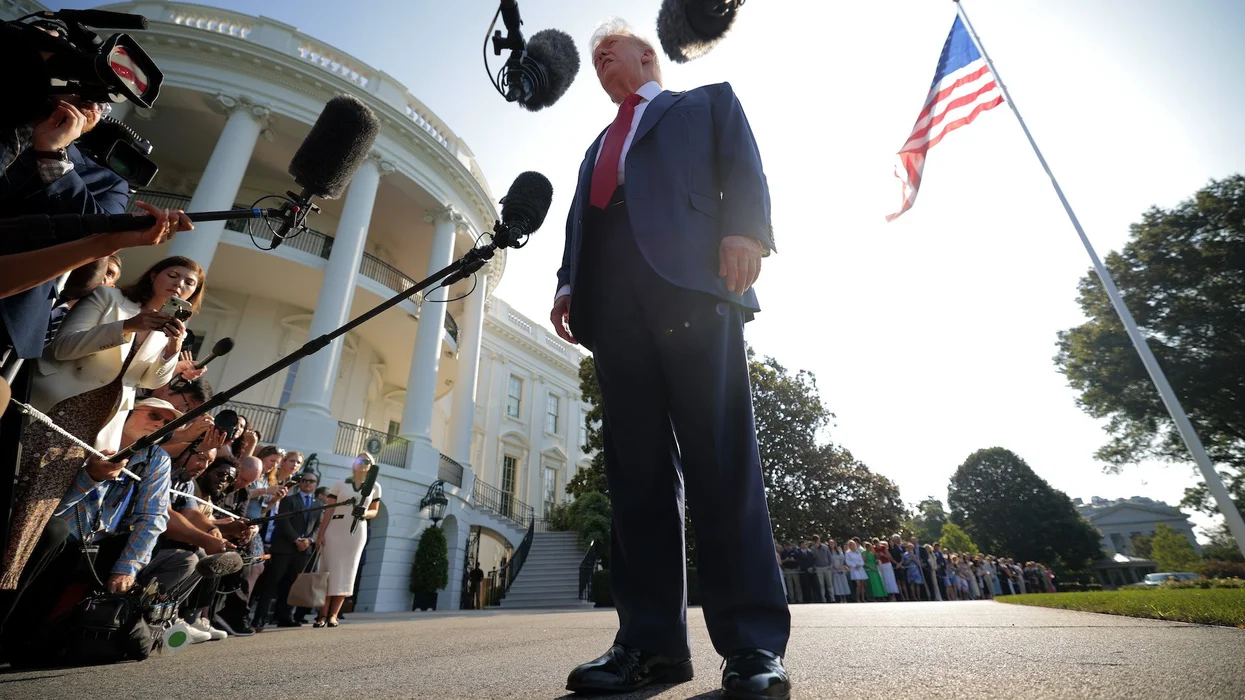
© 2025 Blaze Media LLC. All rights reserved.
Disconcerting & Dangerous': House Passes Amendment That Allows Gov't-Backed Propaganda
May 21, 2012
"No one knows if the information is accurate, partially accurate, or entirely false.”

The recent passage of a $642 billion defense bill by the U.S. House of Representatives, even under the threat of a White House veto, carries weighty provisions such as a ban of same-sex marriage on military bases and continued allowance of indefinite detention of terrorist suspects. But a little reported-on amendment to the National Defense Authorization Act is beginning to get more attention. It is a measure that some are calling "creeping fascism" and others "a bit unsettling."
The amendment has bipartisan sponsorship by Rep. Mac Thornberry (R-Texas) and Rep. Adam Smith (D-Wash) and would essentially legalize propaganda by the government within the United States. Buzzfeed reports it is an amendment that would “strike the current ban on domestic dissemination," meaning both the the Smith-Mundt Act of 1948 and Foreign Relations Authorization Act in 1987 would be overturned.
A Tuesday press release announced the “The Smith-Mundt Modernization Act of 2012" explaining that it would "[modify] a Cold War-era law that hampers diplomatic, defense, and other agencies’ ability to communicate in the 21st century."
“We continue to face a multitude of threats and we need to be able to counter them in a multitude of ways. Communication is among the most important,” Rep. Thornberry said in a statement. “This outdated law ties the hands of America’s diplomatic officials, military, and others by inhibiting our ability to effectively communicate in a credible and transparent way. Congress has a responsibility to fix the situation."
“While the Smith-Mundt Act of 1948 was developed to counter communism during the Cold War, it is outdated for the conflicts of today,” said Congressman Adam Smith. “Effective strategic communication and public diplomacy should be front-and-center as we work to roll back al-Qaeda’s and other violent extremists’ influence among disaffected populations. An essential part of our efforts must be a coordinated, comprehensive, adequately resourced plan to counter their radical messages and undermine their recruitment abilities. To do this, Smith-Mundt must be updated to bolster our strategic communications and public diplomacy capacity on all fronts and mediums – especially online.”

Buzzfeed goes on to state critics of the bill see it as an overreach to give the State Department and the Pentagon this ability:
“Clearly there are ways to modernize for the information age without wiping out the distinction between domestic and foreign audiences,” says Michael Shank, Vice President at the Institute for Economics and Peace in Washington D.C. "That Reps Adam Smith and Mac Thornberry want to roll back protections put in place by previously-serving Senators – who, in their wisdom, ensured limits to taxpayer–funded propaganda promulgated by the US government – is disconcerting and dangerous."“I just don’t want to see something this significant – whatever the pros and cons – go through without anyone noticing,” says one source on the Hill, who is disturbed by the law. According to this source, the law would allow "U.S. propaganda intended to influence foreign audiences to be used on the domestic population."
[...]
“It removes the protection for Americans,” says a Pentagon official who is concerned about the law. “It removes oversight from the people who want to put out this information. There are no checks and balances. No one knows if the information is accurate, partially accurate, or entirely false.”
Juan Cole, a history professor at the University of Michigan, wrote on his blog Informed Comment (via Reader Supported News) that "nothing speaks more urgently to the creeping fascism of American politics" than this act:
I love our guys and gals in uniform, but they can be extremely obnoxious in any discussion about US government policy that 'gets off point' or 'doesn't serve the mission.' At Washington think tank events, I've seen them repeatedly close down discussions among e.g. State Department foreign service officers. You don't want most of the DoD types providing information to us, because it won't be in any way balanced.
Buzzfeed notes that it sees this amendment as part of a larger plan by the government to control a certain message. It cites the government's increased use of social media monitoring technology as part of plan.
(Related: Which keywords on Twitter get the government's attention?)
The Associated Press reports that although the bill passed in the Republican-controlled House, the Democratic-controlled Senate is "likely to scrap many of them and stick to the spending level in the deficit-cutting agreement."
What are your thoughts on the proposed act? Let us know in the comments.
The Associated Press contributed to this report.
Want to leave a tip?
We answer to you. Help keep our content free of advertisers and big tech censorship by leaving a tip today.
Want to join the conversation?
Already a subscriber?
more stories
Sign up for the Blaze newsletter
By signing up, you agree to our Privacy Policy and Terms of Use, and agree to receive content that may sometimes include advertisements. You may opt out at any time.
Related Content
© 2025 Blaze Media LLC. All rights reserved.
Get the stories that matter most delivered directly to your inbox.
By signing up, you agree to our Privacy Policy and Terms of Use, and agree to receive content that may sometimes include advertisements. You may opt out at any time.





